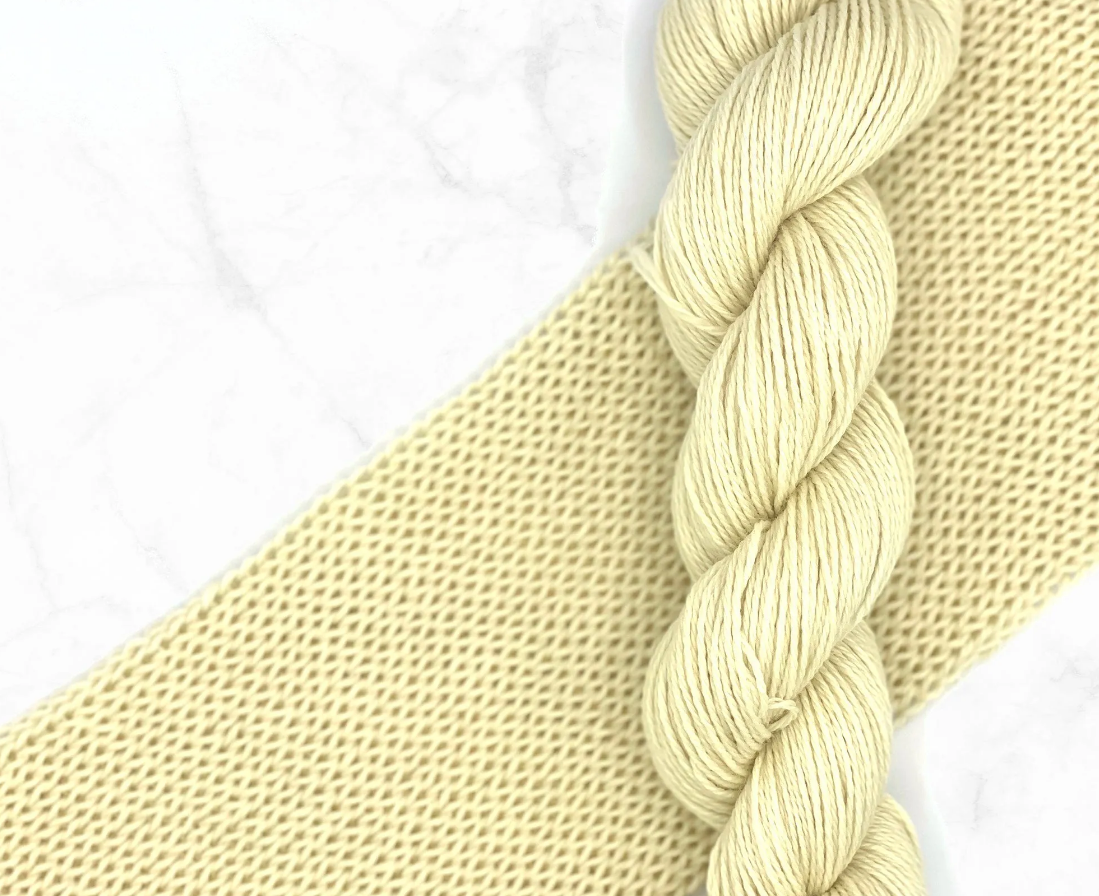Fibre Focus Friday: Organic

You may have spotted a handful of organic tops and yarns on our website and found yourself wondering what the difference is between these products and our other wools. If that's the case then this blog is for you!
Organic referes to products which have been made in accordance with certain standards and accreditations and there are a number of bodies across the UK (and the world) that monitor this. For ease we're going to focus on organic wool in terms of farming rather than organic products as a whole - it's a big area!
Farming organically is optional and some producers choose to this this as historically organic produce has tended to sell at a higher price; this is relative though as the costs of being organic can be quite high. There is a lot of paperwork before you even get in to the production side of things!
Organic wool comes from organic sheep who have been kept organically on organically certified farms and land (spot the key word here). So, if you buy a GOTS (Global Organic Textile Standard) yarn, fibre or garment, you know that every stage of its processing has been to organic stanards, as has all of the animal husbarndry and even land management. It isn't as easy as ticking some boxes on a form! Certain chemicals can and cannot be used, and in some cases these uses are limited to only extreme circimstances (for example some fly strike treatments).
One of the key elements of the certification is welfare; at every stage of the animal's life strict standards have to be adhered to. Failure to do this could result in the loss of organic status for a producer which could be devastating for their livelihood. With this being said, we have to be very clear that this doesn't mean that non-organic wool isn't produced to these standards; a producer could choose to meet these standards but not have the certification. The duty of care then carries on through the processing where only organic approved chemicals can be used. Following this the wool or yarn can be certified as organic.
So is it worth it? Talk about a loaded question! The answer is down to you, the consumer. Generally, you will pay more for an organic product, but it comes with the knowledge that at every step of the process rigorous standards have been met. With the high welfare standards in the UK (and maintained by all our producers) we know that non-organic producers care just as much about their animals, but they may not work organically. We're fans of all wool - organic or not - and for some people having organic wool is top priorty (like having organic fruit and veg!) and that's why we make sure it is available in its natural, undyed form for everyone!







